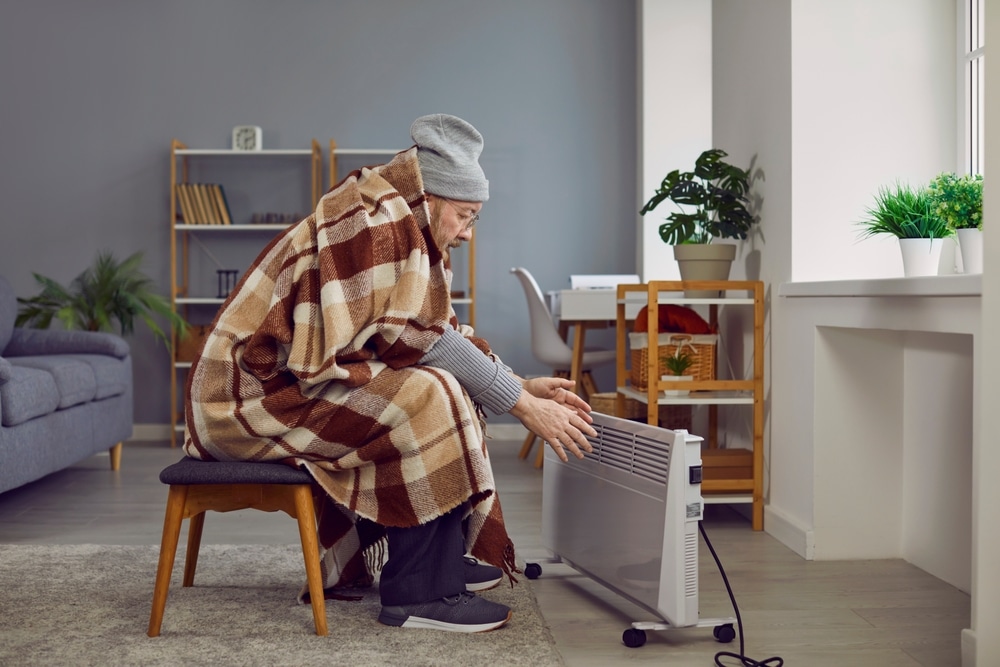How Keeping Warm This Winter Can Protect Your Loved Ones’ Health
As winter approaches and temperatures begin to drop, the colder months can pose significant challenges for older adults. What may seem like a slight chill to many can lead to severe consequences for individuals with compromised immune systems or pre-existing health conditions. Each year, the NHS reports an uptick in hospital admissions related to cold-induced ailments such as pneumonia, heart attacks, and injuries from falls.
Maintaining warmth goes beyond mere comfort; it is critical for health and overall well-being. When body temperature dips below optimal levels, it can place added strain on the heart and lungs, heighten joint stiffness, and even influence mood and mental clarity. Establishing and sustaining a warm, secure home environment is vital for ensuring that older adults remain healthy, active, and self-sufficient throughout winter.
The Importance of Warmth for Senior Health
As we age, our bodies become progressively less efficient at managing temperature. Consequently, older adults tend to lose heat more rapidly and may not feel cold until their body temperature has already fallen to unsafe levels. A diminished immune response also complicates the body’s ability to combat infections, which tend to proliferate during the winter months.
Cold living environments can quickly transition from uncomfortable to hazardous. Low indoor temperatures can elevate blood pressure, strain the cardiovascular system, and increase the likelihood of heart attacks and strokes. Additionally, frigid air can aggravate respiratory conditions, promoting infections such as the flu or pneumonia. For those grappling with chronic issues like arthritis, diabetes, or heart disease, cold weather can exacerbate symptoms and hinder recovery.
Even routine tasks can become daunting in a chilly atmosphere. Stiff joints and muscles can stifle mobility, increasing the risk of falls and injuries.
Mental Health Implications of Staying Warm
Winter’s cold and darkness can impact more than physical health. Many older adults experience feelings of isolation or low mood during these months, especially when shorter days limit social interaction and outdoor activities. Living in a cold environment can intensify these emotions, creating an isolating effect.
Conversely, a warm and inviting home can significantly enhance mood and emotional health. Comfortable living spaces encourage relaxation, better sleep, and a sense of security—factors that contribute to improved mental wellness. Simple gestures like snuggling under a cozy blanket or enjoying a warm cup of tea can foster feelings of connection, care, and contentment in older adults throughout the winter.
Practical Tips for Keeping Warm and Safe This Winter
Ensuring warmth doesn’t have to be complex—small, daily habits can elevate comfort and safety significantly. Here are some straightforward strategies to help fend off the winter chill:
- Dress in Layers: Opt for multiple light layers instead of one thick sweater. Thermal tops, quality socks, and warm slippers assist in trapping body heat.
- Stay Active: Engage in light indoor exercises, like stretching or walking around the home, to stimulate circulation and maintain warmth.
- Seal Drafts: Utilize draft stoppers, door wedges, and thermal curtains to minimize heat loss and keep your home cozy.
- Be Aware of Support Options: Determine eligibility for winter fuel payments, cold weather allowances, or energy efficiency programs that can lower heating expenses.
- Maintain Optimal Home Temperatures: Aim to keep living spaces heated between 18°C and 21°C. Deploying a thermostat or portable heater in essential rooms helps ensure consistent warmth.
Implementing these simple measures can not only protect against the cold but also foster comfort, well-being, and peace of mind during the winter months.
Heating and Boiler Maintenance: Ensuring Efficiency and Reliability
It’s easy to overlook heating systems until they fail on the coldest day of the year. Regular maintenance and check-ups can significantly impact how cozy and cost-effective your home remains throughout the winter.
A proficient heating system not only provides reliable warmth but also helps in reducing energy bills and minimizing environmental effects. Scheduling an annual service ensures that your heating system runs efficiently and safely. Upgrading to a modern, energy-efficient model can vastly enhance reliability and performance.
If your home’s heating system is inconsistent or failing to distribute warmth evenly, exploring options for more efficient systems can ease worries. Comparing and installing energy-efficient heating solutions can help keep your home safe and warm during winter. Investing in a dependable heating system offers peace of mind, ensuring that every room remains comfortable, regardless of outside temperatures.
A Heated Home Equals a Healthy Home
Staying warm in winter transcends mere comfort—it’s vital for safeguarding both physical health and emotional well-being. For older adults, a consistently heated environment can lower the risk of illness, alleviate stress, and strengthen independence.
By preparing in advance—evaluating heating systems, dressing in layers, and executing minor home upgrades—you can avert larger issues down the line. Every effort towards a safer, warmer home is a step towards reinforcing confidence and tranquility.
A warm home can profoundly impact not only comfort but also health, happiness, and overall quality of life.
















